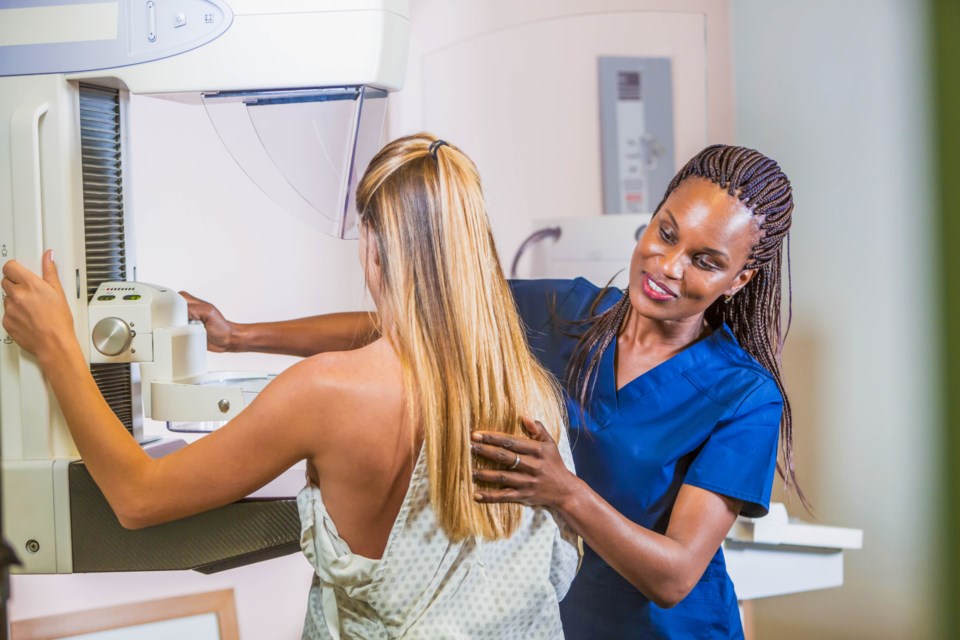October is Breast Cancer Awareness Month and with that, Alberta Health Services (AHS) is encouraging both awareness and possible preventative measures of breast cancer throughout the month.
Dr. Huiming Yang, medical director for screening programs with AHS, said breast cancer is the most common cancer in women and about one in eight Canadian women will be diagnosed with breast cancer in their lifetime.
“It’s very important to properly prevent and treat this condition,” he said of early detection.
According to Yang, breast cancer will start with abnormal cell changes and then some of the cells will turn into cancerous lesions and spread.
“So, regular screening is the best way to find breast cancer early before patients experience any symptoms,” he added.
Yang, who specializes in breast, cervical, colorectal, and lung cancer screening programs, said when the cancer is identified early, the treatment will have a better chance of working and helping improve the quality of life for patients.
The cancer specialist said women between the ages of 50 and 74, with no risk factors, should be screened for breast cancer every two years. Screening involves getting a mammogram or an x-ray of the breast.
He added there are two types of mammograms – one used for screening or early detection, and one used for diagnostic purposes – but the mechanism is similar for both.
“Often people don’t know there are actually two different kinds of mammograms, so the screening is really for people who don’t have symptoms,” he said, adding a diagnostic test is used for those presenting with symptoms.
For a screening mammogram, two x-rays are taken of each breast, one from the top and one from the side. Additional x-rays are taken for diagnostic mammograms.
A radiologist will then examine the x-rays, inspecting them for any abnormal changes. Thereafter, a patient will receive a letter in the mail from Alberta Breast Cancer Screening Program advising of their results.
Yang said women aged 40 to 49 are encouraged to consult their primary care team or family doctor if they have any concerns or questions about breast cancer and starting early breast cancer screening.
“They can speak to their health care providers, and they can discuss the pros and cons of breast cancer screening in the younger age group,” he said. “Whether screening should start early is a discussion between the patient and healthcare providers.”
According to the doctor, women should have a discussion with their family doctor generally about the benefits or potential downsides of a breast cancer screening, as well as what to expect and to prepare for prior to screening.
“Once they understand the breast cancer screening, and the importance and they know what to expect the first time, they can either continue to follow up with their family physicians every two years or they can go directly to the community radiology clinics where they have their first mammogram,” Yang said.
He added that self-referrals are also accepted at radiology clinics.
Yang advised not all women have the same risk for being diagnosed with breast cancer, adding sex, age, and family history are the biggest risk factors for contracting the disease.
“If people can do something to allow the change of their lifestyle [it will] help to reduce their breast cancer risk,” he said.
He added getting regular exercise every day is an important way to reduce the risk of developing cancer, noting that even a walk each day helps to reduce the risk.
Additionally, patients should try to stay at a healthy body weight and eat lots of fruits and vegetables, as well as limit alcohol intake.
“Of course, don’t smoke, or quit smoking. That’s another important thing people can do to lower their risk of breast cancer,” the doctor concluded.
Those interested in learning more about breast cancer screening are encouraged to visit screeningforlife.ca



